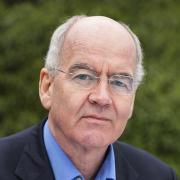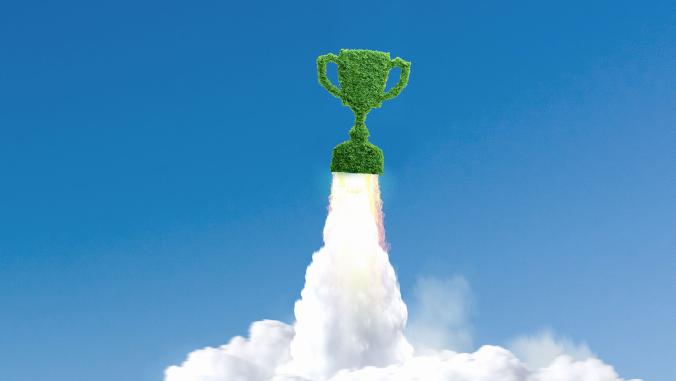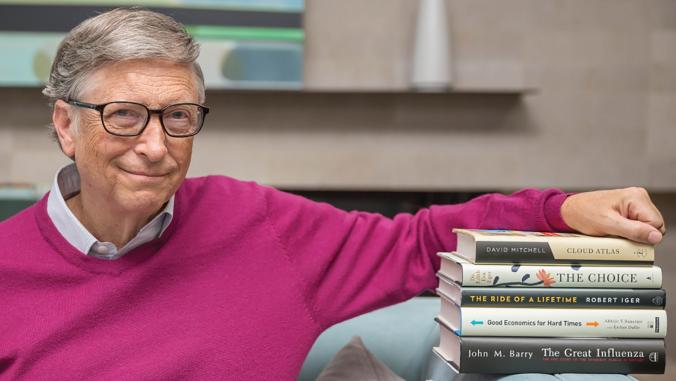The Strong case for sustainable capitalism
Are sustainable development goals reaching a tipping point? Maurice Strong deserves credit — and it's time to review progress so far.

Heard the Stone Soup story? That’s what jumped to mind when I got news of Maurice Strong’s death Nov. 28. He had been the single most important champion of sustainable capitalism for decades and a huge influence on my thinking. I last met him in 2007 at a World Economic Forum event in Dalian, China — thanking him warmly for creating so much of the agenda which people like me have served over recent decades.
And Stone Soup? The story comes in many guises, but Wikipedia distils the essence:
Some travellers come to a village, carrying nothing more than an empty cooking pot. Upon their arrival, the villagers are unwilling to share any of their food stores with the hungry travellers. Then the travellers go to a stream and fill the pot with water, drop a large stone in it, and place it over a fire. One of the villagers becomes curious and asks what they are doing. The travellers answer that they are making stone soup, which tastes wonderful, although it still needs a little bit of garnish to improve the flavour, which they are missing. The villager does not mind parting with a few carrots to help them out, so that gets added to the soup. Another villager walks by, inquiring about the pot, and the travellers again mention their stone soup which has not reached its full potential yet. The villager hands them a little bit of seasoning to help them out. More and more villagers walk by, each adding another ingredient. Finally, a delicious and nourishing pot of soup is enjoyed by all.
Maurice Strong was a master chef when it came to global recipes for Stone Soup. Ultimately, as you may know, the stone is removed, no longer needed. Now that Strong himself has been removed from the scene, it will be fascinating to see whether his influence continues to bubble — as I suspect it will.
Sustainability means running the global environment — Earth Inc. — like a corporation: With depreciation, amortization and maintenance accounts ... keeping the asset whole, rather than undermining your natural capital.
So who was this man born in 1929 in Manitoba? Strong grew up in a poor family in a small town. As his father struggled to find a job in the Great Depression, his son questioned the justness of a system that created such abject social desolation. When his father finally found a job, in the Royal Canadian Air Force, Strong noted the irony that it took a new world war to create the new wave of opportunity and employment.
Thanks to good parenting and teaching, he reached university entrance standard by age 14. Later, he stowed away on a Great Lakes passenger ship, before deciding to go to sea — riding freight trains to Vancouver to that end. Later, he got an apprenticeship at a remote Hudson’s Bay Company trading store, where he was deeply intrigued by the Inuit people, learning their language.
Using a correspondence course on prospecting, he collected rocks (although not to make soup), an interest that led to a successful career in a range of resource-related businesses. Throughout, though, he was fascinated by the potential of the evolving United Nations — whose genesis he had tracked since his freight train days, when he had heard Churchill and Roosevelt broadcast their post-war vision.
While he led what would evolve into the Canadian International Development Agency, Strong became increasingly absorbed by the question how development could be achieved in an environmentally responsible way. This, in turn, led to an invitation to run the 1972 U.N. Stockholm Conference on the Human Environment — following which he became the first executive director of the new United Nations Environment Program.
Twenty years later, he ran the U.N. Rio Earth Summit, attracting the largest number of heads of governments ever gathered in one place. Later still, Strong became fascinated by China, where he spent a growing proportion of his time. In all his many roles, some of which got him into trouble of various sorts, he continued to play that quintessential role as the key ingredient in sustainability’s version of stone soup.
But he was also a key contributor to new thinking about sustainable capitalism. Here are three typical quotations attributed to him:
- "Don't accept that you can't make a difference. Because if you can't make a difference, you won't make a difference, and if you put a multiplier on that we will continue on an unsustainable pathway."
- "After all, sustainability means running the global environment — Earth Inc. — like a corporation: With depreciation, amortization and maintenance accounts. In other words, keeping the asset whole, rather than undermining your natural capital."
"What pleases me most is that sustainable development is on almost everybody's agenda now."
The U.N.’s Sustainable Development Goals suggest that we may be reaching the sort of tipping point that Maurice Strong long heralded. If so, he should take much of the credit. So here’s an idea. In his honor — and in honor of his colleague Gro Harlem Brundtland, who chaired the eponymous Commission of which he was a leader — we should launch an urgent global review of progress to date in delivering on the promise of sustainable development.
The Brundtland Commission report appeared in 1987, so let’s work toward a 30th anniversary event in 2017. And let’s use the process to evolve a stretch agenda for business and for capitalism.
Meanwhile, new forms of Stone Soup are emerging, with new master chefs, as we see with the new Breakthrough Energy Coalition bringing together such billionaires as Gates, Bezos, Zuckerberg and Ma. When Maurice Strong started, there were few billionaires — and only one, Stephan Schmidheiny, consistently interested in sustainability. Now there is an A-to-Z of billionaires expanding their sustainability efforts way beyond the conventional business case — yet another part of that extraordinary Strong legacy.





